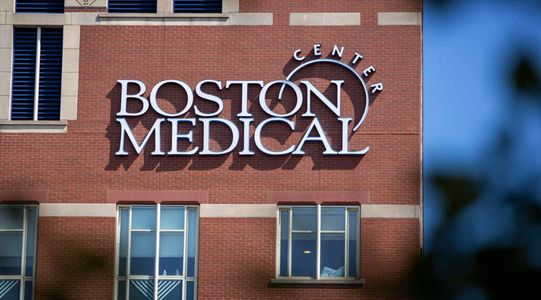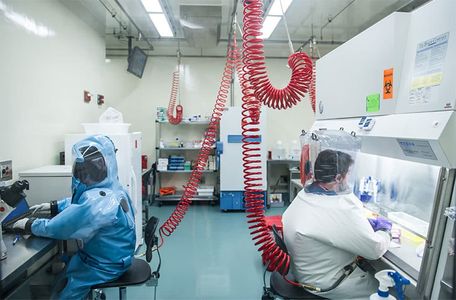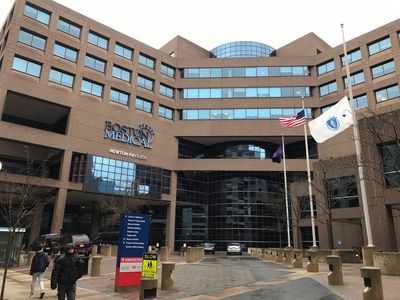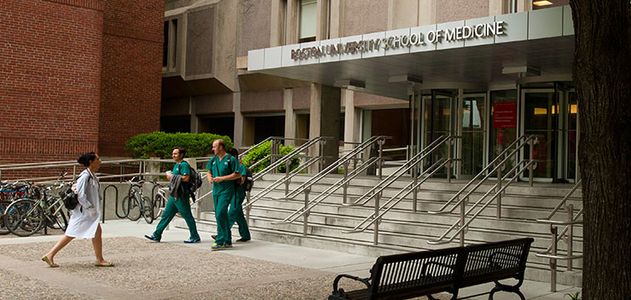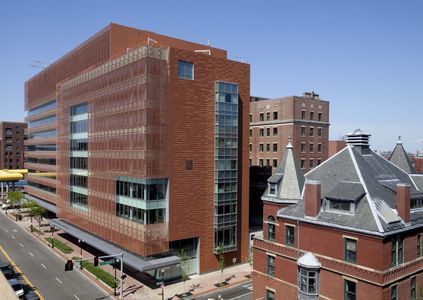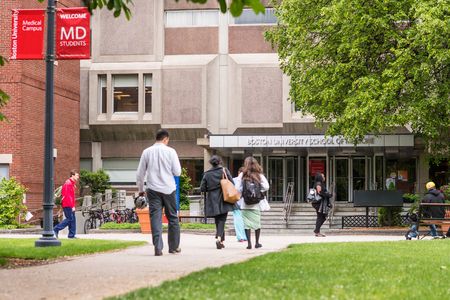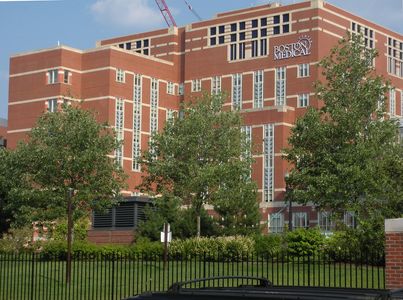Our Mission
We recruit our fellows from internal medicine programs throughout the U.S. We accept applicants who have trained at US or foreign medical schools. All our trainees have completed ACGME-accepted internal medicine residencies. Our fellows represent a range of cultures and backgrounds. Our fellows are interested in our core strengths as a program and serving our underserved, diverse population. In addition, fellows who come to BMC are interested in some of the unique offerings of the program. For example, we offer the option for additional training in infection control and antibiotic stewardship and the option for a combined ID/addiction medicine program. We have a BU-CHART training grant which provides an MSc in Epidemiology, clinical research training and conduct of an HIV-related project. Our fellows receive research mentoring in five core areas of excellence- HIV and hepatitis C care, global health and tuberculosis, hospital epidemiology and antimicrobial stewardship, and immunology and bacterial pathogenesis, ID and addiction. Our program is also differentiated from others by the breadth of clinical pathology in our patients including advanced disease states due to the fact that our patients are underserved (e.g., HIV OIs), our role as a national leader in ID-addiction, as well as the range of tropical infections due to our immigrant population (voted 2nd most racially inclusive hospital). Our fellows have gone on to a variety of different academic and community-based positions. Most have remained in ID and HIV/ hepatitis C sub-specialty practice. Those continuing research are more likely to engage in clinical and epidemiologic research than laboratory research. Three fellows have gone on to train in transplantation infectious disease and all have academic positions. We serve the ever-changing needs of our urban and suburban populations, while honoring their ethnic, religious and cultural differences. We recognize that diversity is a multi-faceted issue, encompassing race, ethnicity, sexual orientation, gender and disability. We feel it is critical that our trainees reflect the diversity of the patients we serve.
The aims and expectations of our program are to:
• Train expert Infectious Disease practitioners who continue to fulfill the BMC mission and who seek to work with a diverse group of patients including the under-served and under-insured.
• Train our fellows to learn how to manage patients with both complex medical and social needs.
• Train our fellows to learn how to manage patients with Infectious Diseases and issues of addiction.
• Train our fellows to learn how to manage Infectious Diseases specific to migrants and be sensitive to their unique needs and concerns.
• Provide fellows with training in epidemiologic, clinical or laboratory research, with the goal of trainees remaining in academic settings.
• Continue to provide an outstanding educational experience for fellows with special focus on our five core areas of excellence- HIV and hepatitis C care, global health and tuberculosis, hospital epidemiology and antimicrobial stewardship, immunology and bacterial pathogenesis, and ID/addiction, – as well as develop novel programs in those areas.
By program completion, trainees will have:
• Master an essential Infectious Diseases knowledge base and demonstrated those cognitive skills necessary to provide reasoned, evidence-based, patient-focused care in a broad range of clinical settings.
• Learn the broader economic, social, and political systems that influence the delivery of health care, and demonstrate the ability to interact effectively with these systems in support of patients’ needs.
• Learn to communicate effectively with, and provide appropriate education to, patients, patient families, and colleagues.
• Show a strong commitment to providing high-quality patient care in a compassionate, ethical, and socially appropriate manner.
• Acquire the basic skills necessary to perform epidemiological investigations and hospital infection control.
• Acquire the skills to perform antimicrobial stewardship for hospitalized and ambulatory care patients.
• Complete a scholarly project and demonstrated an ability to acquire, analyze, and present their findings in a comprehensive and professional manner.

